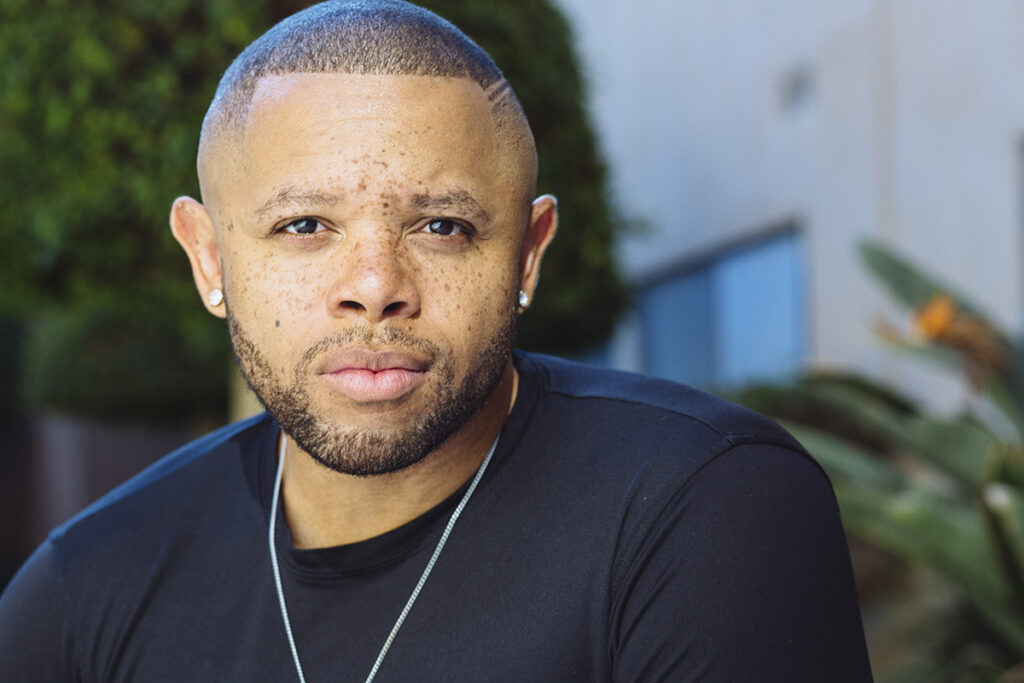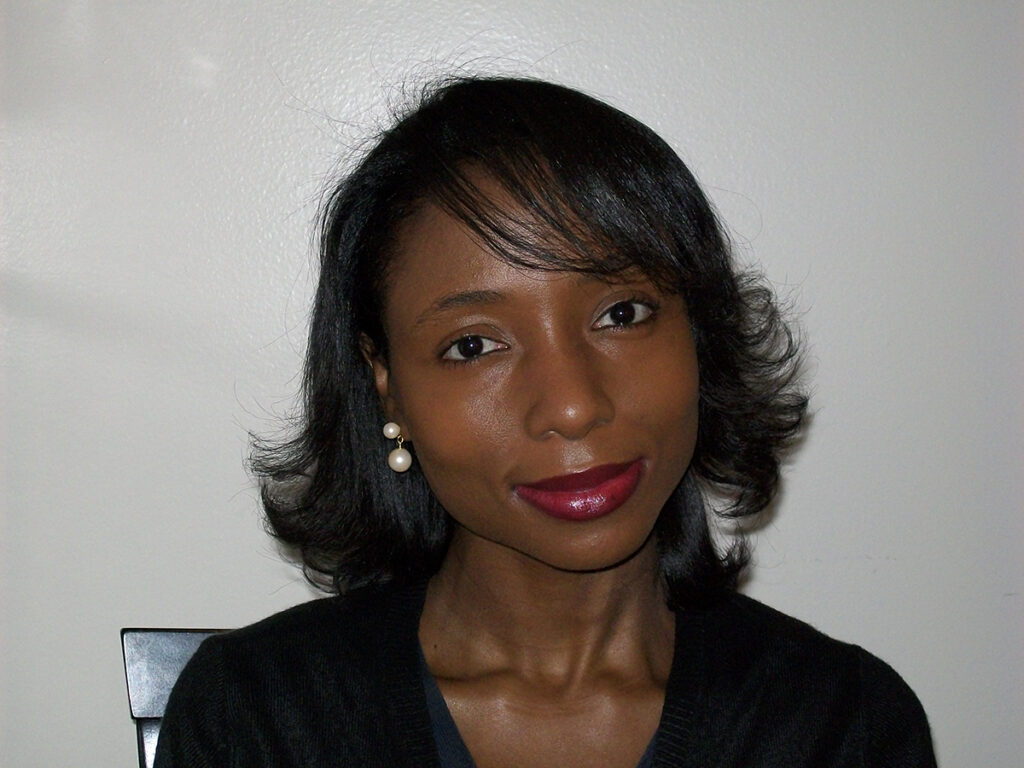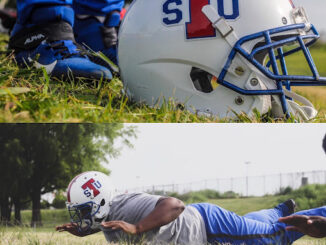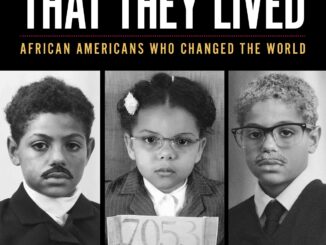
By Whitney Hughes and Daniella Johnson
NABJ Monitor
Being a Black journalist in America can be especially challenging when having not only to report on global issues, but also on difficult topics that impact the Black community.
Working in the current political climate while being in a global pandemic has become overwhelming for some. They have learned that they have to take care of themselves when under pressure.
“At the top of this year, I was the most depressed I’ve ever been,” award-winning journalist and NABJLA President Jarrett Hill said. He said that he had experienced burnout from the previous year and decided this year to step back from daily reporting to focus on some of his other passions, which include screenwriting and media advocacy.

Jarrett Hill, NABJLA President
For Hill, it was important to carefully consider what he allowed himself to see and participate in, including the video of George Floyd’s killing.
“When I’m asked to be a part of something, I’m much more thoughtful of what I say yes to just because I don’t want to have to live with the harm that it can do sometimes,” he said.
In an article on the mental health of journalists for the USC Annenberg Center for Mental Health Journalism, psychologist Dr. Glenda Wrenn Gordon advises journalists to be aware of the harm that reporting on traumatic events can have on their own mental health.
Journalists, she writes, are empathetic and their work often helps society to process trauma and heal, but they may not have the resources to see to their own healing.
“Journalists are not likely to be trained mental health professionals, requiring each to rely on their own experiences and skills to navigate the flood of emotions that come with work,” she writes.
Phillip Emmanuel, a multimedia photojournalist for WTLV/WJXX First Coast News, has been experiencing this type of trauma since starting his career. Emmanuel acknowledges that his career has had a negative impact on his mental and emotional health but his passion for journalism drives him to figure out how and where to find help.
“It was really tough out here for journalists, and I don’t think a lot of people realize that,” Emmanuel said. “Some of us are really out here doing the right thing, ethically, like telling the truth and it seems like those are the ones, at least from my experiences, I have seen the worst done to in this field.”
One of Emmanuel’s earliest experiences with reporting on traumatic events was the Treyvon Martin case as an intern for 13 WAMZ in Macon, Georgia. In 2016, Emmanuel covered the shooting of Keith Lamont Scott. Emmaual was also an active photojournalist during the protests and the pandemic.
“So I always do it for the people. Always,” Emmanuel said. “This is my piece of always giving back because it’s a public service that we do. And a lot of people just don’t realize the public part.”
Throughout his career, Emmanuel has made sure to interact with NABJ to help him build a sense of community outside the one he’s from. Whether the interactions are in-person or virtual, NABJ is always there to help and motivate him to continue telling the stories of his community.
NABJ President Dorothy Tucker knows what it means to be resilient in the face of covering traumatic events. In her 20 years as a journalist Tucker has retold her fair share of traumatic events, but this past year, the pandemic and social justice issues took a toll on her mental health.
“Sometimes it was a lot because as a mother of two Black men and a Black woman, but in particular my boys, you know, I was going through what so many Black mothers experienced,” Tucker said. “And at the height of George Floyd, I remember being on the air and I’m covering the story and I’m talking about the protests that are going on, the social unrest that is happening, the looting that is happening, the anger in explaining and talking to the anchors about the why behind it and putting context into what they’re saying.”
And then, she recalled the relief she felt when one of her sons, driving from Chicago to Atlanta, arrived safely. She was just happy he made it home alive. Her experience prompted her to curate and participate in mental health webinars sponsored by NABJ this year.
“I did so because I needed to share, I needed to hear what my colleagues were going through and tell them what I was going through,” Tucker said. “I needed to hear some tips from the experts. I needed that comfort zone, and I needed to know that I wasn’t alone.”
This past April, NABJ had its first-ever virtual Media Institute on Education and Health emphasizing that mental health should be prioritized both on and off the field.
PBS Newshour White House correspondent Yamiche Alcindor often finds herself on the frontlines reporting not only on White House developments but also on policing, voter suppression and emotional experiences such as the death of Trayvon Martin and Michael Brown, which she found difficult to cover.

Yamiche Alcindor, PBS Newshour White House Correspondent
“I have definitely had times where I’ve been upset when I cover a story, when a story has made me cry,” Alcindor said, “when I felt like I needed to take a minute and just step back from a story.”
For these times, she stressed the importance of her support system of friends, family and a loving husband, resources Gordon emphasizes journalists should tap.
Self-care for Alcindor means taking the time to enjoy life. That can look like physical activities of going to the gym, running or hiking. However, it is equally important for her to spend time with friends and family, to go on vacation when necessary and to take breaks from work and media.
Hill’s self-care looks different in some areas. “I’ve worked with my team to change what my schedule looked like,” he said. This allows him to focus on meetings during the first half of the week and creation for the second half.
He also tries to have one day a week where nothing is scheduled. This is important to him because it allows him to relax and restore his energy. He takes that day to do anything that he feels like doing, whether that is sleeping in or getting a haircut.

Nadra Nittle, Health Reporter
Health reporter Nadra Nittle stressed the importance of physical activity and guided meditations for managing anxiety and stress.
“Waking up in the morning and either walking my dog or going on the elliptical is really good for my mental health,” she said.
Still, self-care can be a challenge. Nittle at times finds herself putting her work before mental health. Heavier workloads can sometimes prevent her from maintaining her care routines, which can be the case for many working journalists.
“Just feeling like, ‘Okay I have to get stuff done,’ so it doesn’t matter if I am exhausted or drained,” Nittle said. “That kind of prevents me from maintaining those routines.”
Click the link below for tips on self-care from experts:
http://www.nabjmonitor.com/2022/advice-on-self-care-from-experts/




Be the first to comment